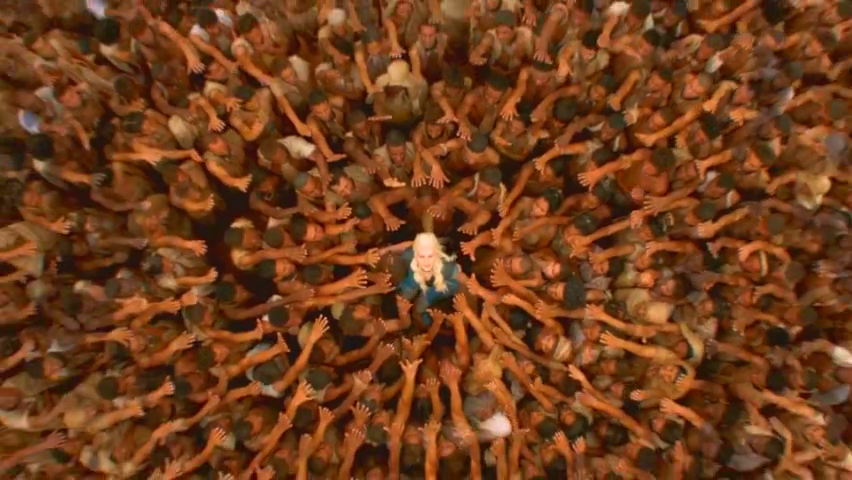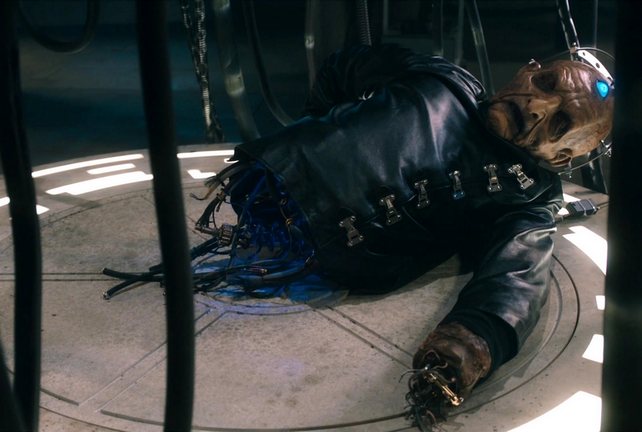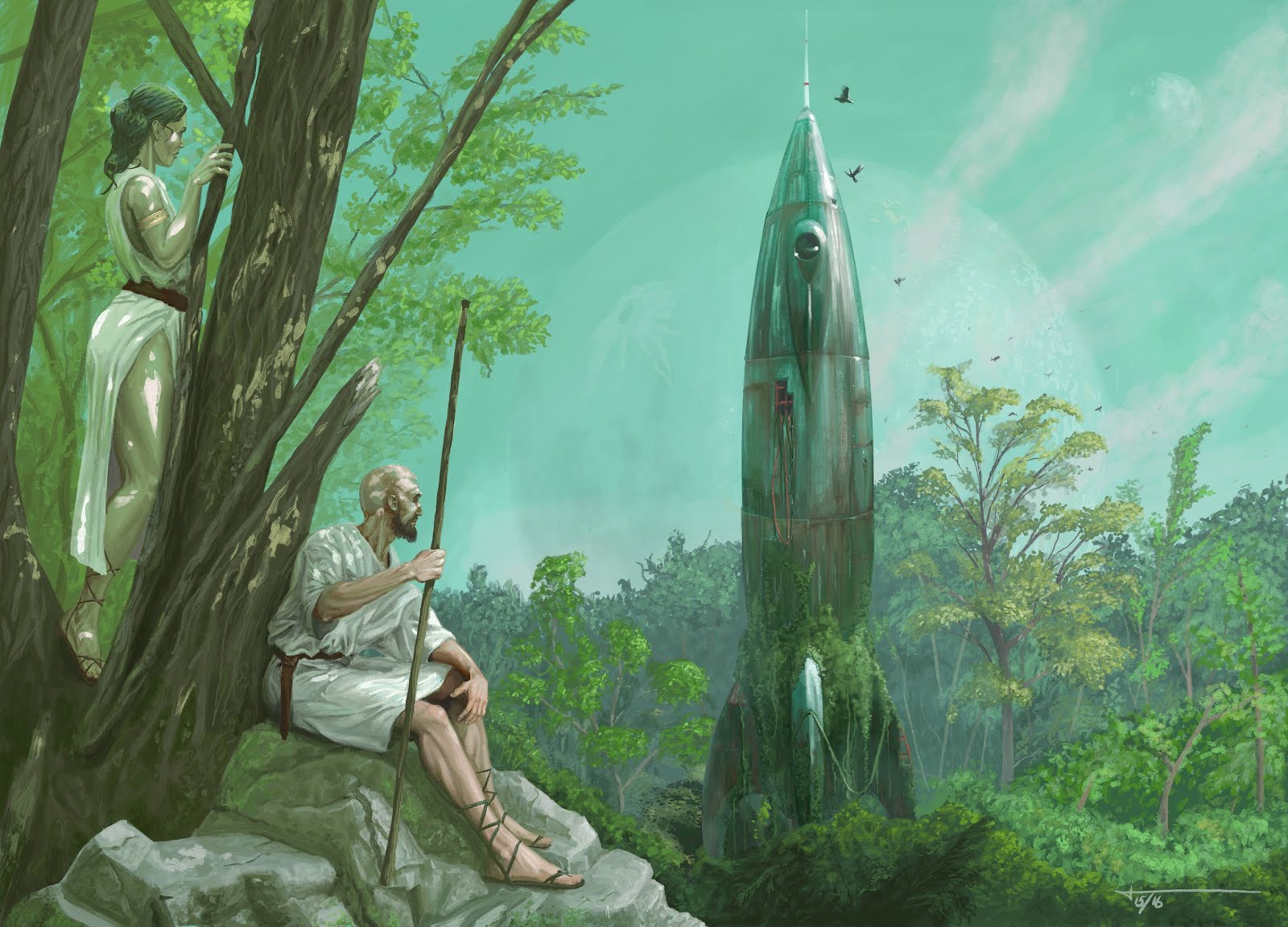“Ragnarok”: Armageddon Game
I can’t help but read “Armageddon Game” in the context of the Cold War, or rather, in the context of the perceived end of the Cold War that would have permeated the zeitgeist of the early 1990s. I say “perceived”, because a lot of the geopolitical climate we currently live in as of this writing stems directly from the Cold War, or from multinational powers operating like the Cold War is still on. Which, by definition, means that it is.
Perhaps some of this is due to the title’s similarity to that of the Original Series episode “A Taste of Armageddon”, which was likewise about apocalyptic wargaming with thinly-veiled stand-ins for nuclear weapons. But “Armageddon Game” goes well above and beyond the average Cold War fears over Mutually Assured Destruction: In this story, the analogs for the United States and the Soviet Union are entering their process of disarmament, a certainly timely topic in early 1994, yet are still engaged in heinous acts related to their earlier displays of diplomatic aggression. In order to ensure such a protracted conflict can never happen again, they can’t just destroy their stockpile of weapons, they want to erase all record that their weapons ever existed in the first place. This includes…disposing of…anyone who had any contact with the weapons or the process through which they were created, which unfortunately includes Chief O’Brien and Doctor Bashir.
(It is perhaps worth noting that mere weeks after this episode aired, the CIA arrested Aldrich Ames at the end of a nearly ten year investigation into his perpetration of the second biggest act of espionage of the Cold War. The biggest ever espionage case, which would result chief investigator and double agent Robert Hanson playing cat-and-mouse with his own superiors for literally decades, would not be resolved until 2001.)
It’s significant that these supposed arch-enemies, the T’Lani and the Kellerun, would actually be working together behind the scenes to manipulate information about their activities during the Cold War. State governments look out for each other, not for the people they claim to govern, and it’s no different from the United States and the Soviet Union, who spent the majority of their Cold War constructing narratives about themselves they then imposed upon their people. Constructing narratives-That’s what’s going on in “Armageddon Game” too: Whoever writes the textbooks, or pays the people who write the textbooks, gets to decide what is and isn’t history, because that’s the narrative that gets taught to children in history classes and disseminated through the public discourse. Were the T’Lani and Kellerun to be successful in their efforts (which I hesitate to call “revisionist”, because there’s never any such thing as pure history-It’s only what gets written down and repeated by those with the power to do so), they would erase their Cold War from lived memory itself, and saved their own backsides in the process.…




_p01_(comichost-dcp).jpg) Moore’s disorientation and confusion in the wake of Watchmen is wholly understandable. Even reading Watchmen is, at times, enough to generate a sense of dazed exhaustion. And this is very much the point – an effect consciously generated by Moore’s use of the dense uniformity of the nine-panel grid. As Kieron Gillen puts it in Kieron Gillen Talks Watchmen, “if we’re talking about the many icons of Watchmen, [the nine-panel grid] is the invisible one. It underlies everything. We’re to watch these little boxes – hundreds of them – and make sense by combining them all into a larger piece of meaning. Watch,” he says, and snaps his fingers to cue his projectionist to advance his PowerPoint to a shot of Ozymandias watching his wall of television screens. Gillen talks about the comic as a “clockwork machine” in which “everything is predetermined. The forces that are put into motion mean this… the clock will carry on ticking, and if you read Watchmen enough you’ll know what the next tick is.” Gillen, here, is talking about the comic’s famously ambiguous ending, making a strong case that in fact there is only one possible “next step” for the book to take, and that the inevitable momentum of that step hangs impermeably over the entire work, which is in turn what Morrison speaks of when he talks about how the god of Watchmen is always shoving his cock in the reader’s face.
Moore’s disorientation and confusion in the wake of Watchmen is wholly understandable. Even reading Watchmen is, at times, enough to generate a sense of dazed exhaustion. And this is very much the point – an effect consciously generated by Moore’s use of the dense uniformity of the nine-panel grid. As Kieron Gillen puts it in Kieron Gillen Talks Watchmen, “if we’re talking about the many icons of Watchmen, [the nine-panel grid] is the invisible one. It underlies everything. We’re to watch these little boxes – hundreds of them – and make sense by combining them all into a larger piece of meaning. Watch,” he says, and snaps his fingers to cue his projectionist to advance his PowerPoint to a shot of Ozymandias watching his wall of television screens. Gillen talks about the comic as a “clockwork machine” in which “everything is predetermined. The forces that are put into motion mean this… the clock will carry on ticking, and if you read Watchmen enough you’ll know what the next tick is.” Gillen, here, is talking about the comic’s famously ambiguous ending, making a strong case that in fact there is only one possible “next step” for the book to take, and that the inevitable momentum of that step hangs impermeably over the entire work, which is in turn what Morrison speaks of when he talks about how the god of Watchmen is always shoving his cock in the reader’s face._p00_(comichost-dcp).jpg)

 This should be read as, in some ways, a continuation of the previous instalment.
This should be read as, in some ways, a continuation of the previous instalment.
 So apparently after the legendary
So apparently after the legendary